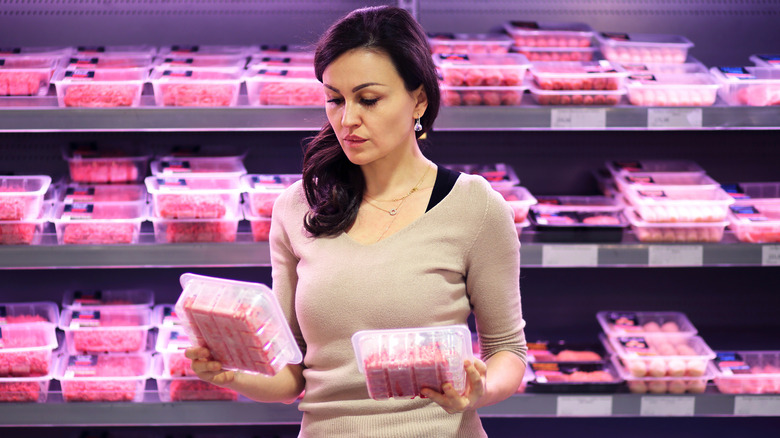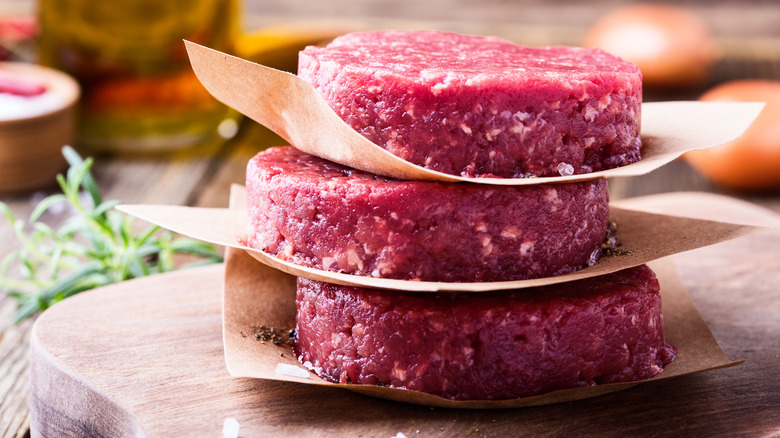New Study May Have You Questioning Your Antibiotic-Free Beef
According to a new study published in "Science" magazine, some beef sold in the U.S. labeled "raised without antibiotics" may not actually be antibiotic-free.
With concerns about antibiotic use in livestock rising over the past several years, per Forbes, the raised without antibiotics (RWA) label issued by the United States Department of Agriculture (USDA) is meant to help shoppers navigate a crowded consumer landscape. Per the study, shoppers may choose RWA meat for personal or public-health reasons — but in either case, USDA labeling is considered a credible way to determine whether or not meat is antibiotic-free.
While consumers use USDA labels to guide their purchases, the study explains the USDA "does not require empirical antibiotic testing" to verify meat suppliers' claims. As a result, notes the study, there is potential to cheat the system for financial gain.
The study's findings
Per the study published in "Science," researchers investigated the urine of cattle at 33 RWA certified feedyards, all of which were part of a "No Antibiotics Ever" initiative. The good news: of the 38,219 cattle included in the study, 85% came from lots where researchers' tests yielded no positive results (meaning they didn't find any antibiotics present). The remaining 15%, however, showed less promising signs. 10% of cattle came from lots where tests for antibiotics yielded at least one positive result, and 5% came from lots where all samples came back positive.
From their findings, the researchers concluded that "a material portion of beef products currently being marketed with RWA labels is from cattle that were treated with antibiotics" — and that, as a result, asserted that the RWA label "lack[s] integrity." To solve the problem, the study suggests adopting reforms like more vigorous, continuous testing of RWA-labeled meat and increased transparency from producers. Otherwise, they believe consumers may lose their trust in the RWA label entirely.

